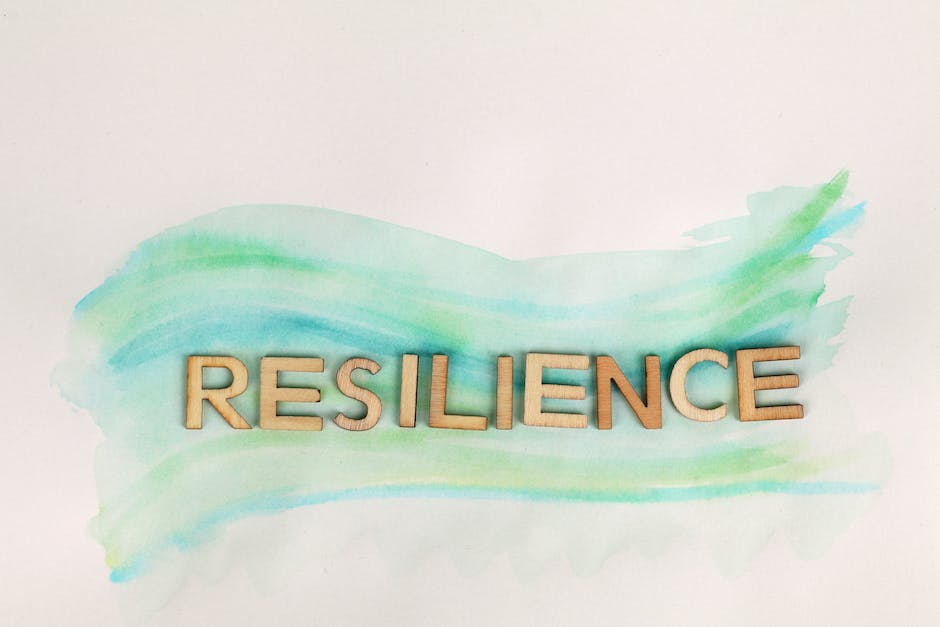Table of Contents
- Introduction
- The Role of Resilient Leadership in Addressing Climate Change Challenges in the Arab World
- Building Sustainable Infrastructure: A Key Component of Resilient Leadership in the Arab World
- Adapting to Changing Climate Patterns: Strategies for Resilient Leadership in the Arab World
- Fostering Collaboration and Partnerships: Enhancing Resilient Leadership in the Arab World’s Response to Climate Change
- Q&A
- Conclusion
“Leading through change, empowering the Arab world to weather the storm.”
Introduction
“Resilience in Leadership: Navigating the Effects of Climate Change in the Arab World” is a topic of growing importance in today’s global context. As climate change continues to pose significant challenges and threats to the Arab world, effective leadership becomes crucial in navigating and mitigating its impacts. This introduction aims to shed light on the concept of resilience in leadership and its relevance in addressing the complex and multifaceted issues arising from climate change in the Arab region. By exploring the unique challenges faced by Arab countries, as well as the potential strategies and approaches that resilient leaders can adopt, this discussion seeks to highlight the importance of proactive and adaptive leadership in building a sustainable and resilient future for the Arab world.
The Role of Resilient Leadership in Addressing Climate Change Challenges in the Arab World

The Arab world is facing numerous challenges due to the effects of climate change. Rising temperatures, water scarcity, and extreme weather events are just a few of the issues that are impacting the region. In order to effectively address these challenges, resilient leadership is crucial.
Resilient leadership is the ability to adapt and respond to change, while maintaining a positive and proactive approach. It involves being able to navigate through difficult situations and find innovative solutions. In the context of climate change, resilient leadership is essential for the Arab world to mitigate the effects and build a sustainable future.
One of the key roles of resilient leadership in addressing climate change challenges is the ability to create awareness and mobilize action. Leaders need to educate their communities about the impacts of climate change and the importance of taking action. By raising awareness, leaders can inspire individuals and organizations to make changes in their behavior and adopt sustainable practices.
Resilient leaders also play a crucial role in building partnerships and collaborations. Climate change is a global issue that requires collective action. Leaders need to foster relationships with other countries, organizations, and stakeholders to share knowledge, resources, and best practices. By working together, the Arab world can develop innovative solutions and implement effective strategies to mitigate the effects of climate change.
Furthermore, resilient leadership involves making informed decisions based on scientific evidence and expert advice. Leaders need to stay updated on the latest research and understand the implications of climate change on their communities. By making informed decisions, leaders can implement policies and initiatives that are effective in addressing the challenges posed by climate change.
Another important aspect of resilient leadership is the ability to adapt and be flexible. Climate change is a dynamic and evolving issue, and leaders need to be able to adjust their strategies and plans accordingly. This may involve revisiting policies, reallocating resources, or implementing new technologies. By being adaptable, leaders can ensure that their communities are prepared for the changing climate and can effectively respond to its impacts.
Resilient leadership also involves empowering individuals and communities to take action. Leaders need to provide the necessary tools, resources, and support for individuals and organizations to adopt sustainable practices. This may include providing training programs, financial incentives, or access to renewable energy sources. By empowering individuals, leaders can create a sense of ownership and responsibility, which is crucial for long-term sustainability.
In conclusion, resilient leadership is essential for addressing the challenges posed by climate change in the Arab world. By creating awareness, building partnerships, making informed decisions, being adaptable, and empowering individuals, leaders can effectively navigate the effects of climate change and build a sustainable future. It is crucial for leaders to take a proactive and positive approach, and to inspire and mobilize action at all levels. With resilient leadership, the Arab world can overcome the challenges of climate change and create a better future for generations to come.
Building Sustainable Infrastructure: A Key Component of Resilient Leadership in the Arab World
Building Sustainable Infrastructure: A Key Component of Resilient Leadership in the Arab World
In the face of climate change, the Arab world is experiencing a range of challenges that require strong and resilient leadership. As extreme weather events become more frequent and intense, it is crucial for leaders in the region to prioritize the development of sustainable infrastructure. By doing so, they can ensure the long-term resilience of their communities and economies.
One of the key aspects of building sustainable infrastructure is the integration of renewable energy sources. The Arab world is blessed with abundant sunlight, making solar energy a particularly viable option. By investing in solar power plants and encouraging the use of solar panels in homes and businesses, leaders can reduce their dependence on fossil fuels and decrease greenhouse gas emissions. This not only helps combat climate change but also creates new job opportunities and stimulates economic growth.
Another important aspect of sustainable infrastructure is the efficient use of water resources. The Arab world is known for its arid climate, and water scarcity is a pressing issue in many countries. Leaders must prioritize the development of water management systems that promote conservation and reduce waste. This can be achieved through the implementation of advanced irrigation techniques, the construction of water treatment plants, and the promotion of water-saving practices among individuals and businesses.
Furthermore, resilient leadership in the Arab world should focus on the development of smart cities. These cities utilize advanced technologies to optimize resource allocation, improve transportation systems, and enhance the overall quality of life for residents. By investing in smart city infrastructure, leaders can create more sustainable and livable urban environments. This includes the implementation of smart grids, which enable efficient energy distribution, and the use of sensors to monitor air quality and reduce pollution.
In addition to these measures, resilient leadership in the Arab world should prioritize the protection and preservation of natural ecosystems. The region is home to diverse and fragile ecosystems, such as coral reefs and mangroves, which provide essential services like coastal protection and biodiversity conservation. Leaders must work towards the establishment of protected areas and the enforcement of environmental regulations to ensure the long-term sustainability of these ecosystems.
To achieve these goals, leaders in the Arab world must foster collaboration and cooperation among different stakeholders. This includes government agencies, private sector companies, non-governmental organizations, and local communities. By involving all relevant parties in the decision-making process, leaders can ensure that sustainable infrastructure projects are well-planned, effectively implemented, and supported by the people they are meant to benefit.
In conclusion, building sustainable infrastructure is a key component of resilient leadership in the Arab world. By integrating renewable energy sources, promoting efficient water management, developing smart cities, and protecting natural ecosystems, leaders can navigate the effects of climate change and ensure the long-term resilience of their communities and economies. Collaboration and cooperation among different stakeholders are essential for the successful implementation of sustainable infrastructure projects. With strong and resilient leadership, the Arab world can overcome the challenges posed by climate change and create a more sustainable future.
Adapting to Changing Climate Patterns: Strategies for Resilient Leadership in the Arab World
Resilience in Leadership: Navigating the Effects of Climate Change in the Arab World
Adapting to Changing Climate Patterns: Strategies for Resilient Leadership in the Arab World
Climate change is a global phenomenon that affects every corner of the world, and the Arab World is no exception. With its unique geographical location and dependence on natural resources, the region is particularly vulnerable to the impacts of climate change. As such, it is crucial for leaders in the Arab World to develop strategies that promote resilience and enable them to navigate the effects of climate change.
One of the key challenges faced by leaders in the Arab World is the increasing frequency and intensity of extreme weather events. From droughts and heatwaves to floods and storms, these events can have devastating consequences for communities and economies. To build resilience, leaders must prioritize disaster preparedness and response. This includes investing in early warning systems, improving infrastructure, and implementing effective evacuation plans. By doing so, leaders can minimize the impact of extreme weather events and protect their communities.
Another important aspect of resilient leadership in the face of climate change is the promotion of sustainable development. The Arab World is heavily reliant on fossil fuels, which contribute significantly to greenhouse gas emissions. To mitigate the effects of climate change, leaders must transition towards renewable energy sources and promote energy efficiency. This requires investing in renewable energy infrastructure, implementing energy conservation measures, and encouraging the adoption of sustainable practices in industries such as agriculture and transportation. By embracing sustainable development, leaders can reduce their carbon footprint and contribute to global efforts to combat climate change.
Water scarcity is another pressing issue in the Arab World, exacerbated by climate change. As temperatures rise and rainfall patterns become more unpredictable, water resources are becoming increasingly scarce. Leaders must prioritize water management and conservation strategies to ensure the availability of this vital resource. This includes investing in water infrastructure, implementing efficient irrigation techniques, and promoting water-saving practices among individuals and industries. By managing water resources effectively, leaders can mitigate the impact of water scarcity on communities and economies.
In addition to these strategies, resilient leadership in the Arab World requires a focus on education and awareness. Climate change is a complex issue, and leaders must ensure that their communities are well-informed and prepared. This includes providing education on climate change and its impacts, as well as promoting sustainable practices at an individual level. By empowering their communities with knowledge and skills, leaders can foster a culture of resilience and adaptability.
Furthermore, collaboration and cooperation are essential for resilient leadership in the Arab World. Climate change is a global challenge that requires collective action. Leaders must work together, both within the region and internationally, to share knowledge, resources, and best practices. This includes participating in global climate change conferences, joining international agreements such as the Paris Agreement, and collaborating with other countries and organizations to develop innovative solutions. By fostering collaboration, leaders can leverage collective expertise and resources to address the challenges posed by climate change.
In conclusion, resilient leadership is crucial for navigating the effects of climate change in the Arab World. By prioritizing disaster preparedness, promoting sustainable development, managing water resources effectively, fostering education and awareness, and fostering collaboration, leaders can build resilience and enable their communities to adapt to changing climate patterns. In doing so, they can protect their communities, economies, and natural resources, and contribute to global efforts to combat climate change.
Fostering Collaboration and Partnerships: Enhancing Resilient Leadership in the Arab World’s Response to Climate Change
Resilience in Leadership: Navigating the Effects of Climate Change in the Arab World
Fostering Collaboration and Partnerships: Enhancing Resilient Leadership in the Arab World’s Response to Climate Change
Climate change is a global challenge that requires strong leadership and collaboration to effectively address its impacts. In the Arab world, where the effects of climate change are particularly pronounced, resilient leadership is crucial in navigating the challenges and finding sustainable solutions. This article explores the importance of fostering collaboration and partnerships to enhance resilient leadership in the Arab world’s response to climate change.
One of the key aspects of resilient leadership in the face of climate change is the ability to foster collaboration among various stakeholders. Climate change is a complex issue that requires the involvement of governments, businesses, civil society organizations, and communities. By bringing together these diverse actors, resilient leaders can harness their collective knowledge, resources, and expertise to develop comprehensive strategies and initiatives.
Partnerships play a vital role in enhancing resilient leadership in the Arab world’s response to climate change. Collaborating with international organizations, such as the United Nations and the World Bank, can provide access to funding, technical assistance, and best practices from around the world. These partnerships can also facilitate knowledge exchange and capacity building, enabling Arab countries to develop their own expertise in climate change adaptation and mitigation.
Furthermore, partnerships with regional organizations and neighboring countries can foster cooperation and shared responsibility in addressing climate change. The Arab world is interconnected, and the impacts of climate change do not respect national borders. By working together, countries can pool their resources and efforts to develop regional strategies and initiatives that are more effective and efficient.
Resilient leadership in the Arab world’s response to climate change also requires engaging with local communities. These communities are often the most vulnerable to the impacts of climate change, such as rising temperatures, water scarcity, and extreme weather events. By involving them in decision-making processes and empowering them to take action, resilient leaders can ensure that their responses are inclusive, equitable, and sustainable.
In addition to fostering collaboration and partnerships, resilient leadership in the Arab world’s response to climate change requires a long-term vision and commitment. Climate change is a complex and evolving issue, and its impacts will continue to be felt for decades to come. Resilient leaders must have the foresight to anticipate future challenges and develop strategies that are adaptable and flexible.
Investing in research and innovation is another crucial aspect of resilient leadership. By supporting scientific research and technological advancements, leaders can stay ahead of the curve and develop innovative solutions to climate change. This can include developing renewable energy sources, implementing sustainable agricultural practices, and promoting green infrastructure.
Finally, resilient leadership in the Arab world’s response to climate change requires effective communication and advocacy. Leaders must be able to articulate the urgency and importance of addressing climate change to various audiences, including policymakers, businesses, and the general public. By raising awareness and mobilizing support, resilient leaders can create a sense of shared responsibility and inspire collective action.
In conclusion, resilient leadership is essential in navigating the effects of climate change in the Arab world. Fostering collaboration and partnerships, engaging with local communities, having a long-term vision, investing in research and innovation, and effective communication and advocacy are all key elements of resilient leadership. By embracing these principles, Arab countries can enhance their capacity to respond to climate change and build a more sustainable and resilient future.
Q&A
1. What is the importance of resilience in leadership when dealing with the effects of climate change in the Arab World?
Resilience in leadership is crucial when addressing the effects of climate change in the Arab World as it enables leaders to effectively navigate and adapt to the challenges posed by climate change, ensuring the well-being and sustainability of their communities.
2. How can leaders in the Arab World develop resilience in the face of climate change?
Leaders in the Arab World can develop resilience by promoting sustainable practices, investing in climate adaptation strategies, fostering collaboration and knowledge-sharing, and prioritizing the needs and concerns of their communities.
3. What are some specific challenges that leaders in the Arab World may face when dealing with climate change?
Leaders in the Arab World may face challenges such as water scarcity, rising temperatures, extreme weather events, desertification, and the impact on agriculture and food security. They must also address social and economic implications, including displacement and resource conflicts.
4. What are the potential benefits of building resilience in leadership to address climate change in the Arab World?
Building resilience in leadership can lead to increased preparedness, reduced vulnerability, and enhanced adaptive capacity in the face of climate change. It can also foster innovation, sustainable development, and the preservation of cultural heritage in the Arab World.
Conclusion
In conclusion, “Resilience in Leadership: Navigating the Effects of Climate Change in the Arab World” highlights the importance of strong leadership in addressing the challenges posed by climate change in the Arab region. The paper emphasizes the need for leaders to develop resilience and adaptability to effectively navigate the impacts of climate change. It underscores the significance of proactive measures, such as implementing sustainable practices, promoting renewable energy sources, and fostering international cooperation. By embracing resilient leadership, the Arab world can mitigate the adverse effects of climate change and work towards a sustainable and prosperous future.




